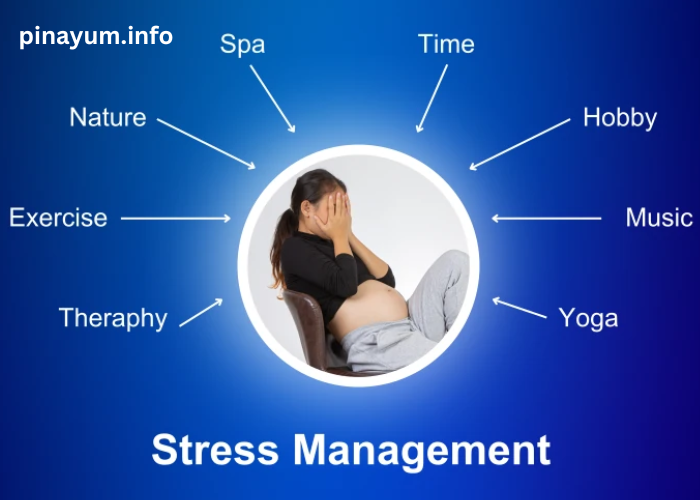In an increasingly busy and fast-paced world, many people struggle with finding balance in their lives. Whether it’s juggling work, family, health, or personal goals, the demands of everyday living can leave us feeling overwhelmed and disconnected from our true sense of purpose. Achieving a balanced and fulfilling life is not a destination, but a continuous journey of self-awareness, intention, and action.
Creating a balanced and fulfilling life involves nurturing various aspects of your well-being, including emotional, physical, social, and mental health. It’s about aligning your values, passions, and goals with how you spend your time and energy. In this article, we’ll explore the art of achieving balance in life, offering practical tips and strategies that can help you live a more intentional and satisfying life.
Understanding the Importance of Balance
Before diving into the methods and practices for creating a balanced life, it’s essential to understand why balance matters. A balanced life enables you to manage stress better, build meaningful relationships, enhance personal well-being, and increase your productivity and creativity.
1. Stress Reduction: When life is out of balance, stress levels rise, leading to physical and emotional burnout. Balance allows you to take control of your well-being, reducing the negative impact of stress on your body and mind.
2. Improved Health: Balance isn’t just about time management; it’s also about managing your health. A well-balanced life involves giving equal importance to physical activity, mental relaxation, and emotional well-being, contributing to better overall health.
3. Personal Fulfillment: A fulfilling life is one where you feel aligned with your values, passions, and aspirations. Striving for balance ensures that you are not neglecting any part of your life and are able to pursue what truly matters to you.
4. Stronger Relationships: When you achieve balance, you can devote quality time and attention to your relationships with family, friends, and colleagues, leading to deeper, more meaningful connections.
Recognizing the Imbalance: Signs You Need to Recalibrate Your Life
Achieving balance isn’t a one-time effort; it requires constant recalibration. But before you can work on restoring balance, it’s essential to recognize the signs of imbalance. These are some common indicators that your life may need a reset:
1. Constant Stress and Anxiety: If you are frequently feeling overwhelmed, stressed, or anxious, it may be a sign that you’re trying to do too much and are neglecting self-care and other important aspects of life.
2. Lack of Time for Yourself: If you find yourself constantly sacrificing personal time for work, chores, or other obligations, you may have lost touch with your own needs and desires.
3. Burnout and Fatigue: When your physical and emotional energy reserves are depleted, it may indicate that you are overextending yourself without taking the necessary breaks and time for rest.
4. Disconnection from Relationships: If you feel emotionally distant from loved ones or struggle to maintain relationships, it may be a result of neglecting your social and emotional needs in favor of other pursuits.
5. Loss of Passion and Purpose: If you feel uninspired or disconnected from your passions, it might be a sign that you are not investing enough energy in the activities and goals that bring you joy and fulfillment.
Key Elements of a Balanced and Fulfilling Life
A balanced life encompasses multiple dimensions of well-being. Here are the key elements that contribute to a holistic sense of balance:
1. Physical Health: Prioritize Your Body
Your physical health forms the foundation of a balanced life. Without good health, it becomes challenging to pursue your goals, connect with others, or enjoy the present moment. Regular exercise, nutritious eating, and adequate rest are all essential components of maintaining a healthy body.
Practical Tips for Physical Health:
- Exercise Regularly: Incorporate physical activity into your daily routine, whether it’s a brisk walk, yoga, or strength training.
- Eat Nutritious Foods: Focus on eating a balanced diet rich in vegetables, fruits, whole grains, and lean proteins to fuel your body with the necessary nutrients.
- Prioritize Sleep: Aim for 7-9 hours of sleep each night to allow your body to rest, recover, and rejuvenate.
- Stay Hydrated: Drink plenty of water throughout the day to keep your body hydrated and energized.
By taking care of your physical health, you create the energy and vitality needed to thrive in other areas of your life.
2. Mental Health: Nurture Your Mind
Mental health is equally important in achieving balance. Your thoughts, beliefs, and attitudes shape how you experience the world. Cultivating mental well-being requires practices like mindfulness, stress management, and cultivating a positive mindset.
Practical Tips for Mental Health:
- Practice Mindfulness: Engage in mindfulness practices such as meditation, breathing exercises, or mindful walking to help reduce stress and promote mental clarity.
- Challenge Negative Thoughts: Practice positive self-talk and cognitive reframing to manage negative thinking patterns that can hinder your mental well-being.
- Engage in Stimulating Activities: Engage in activities that stimulate your mind, such as reading, puzzles, or creative hobbies, to keep your brain sharp and engaged.
- Seek Professional Help: Don’t hesitate to consult a therapist or counselor when dealing with overwhelming emotions or mental health challenges.
When your mind is healthy, you are better equipped to handle life’s challenges and remain focused on your goals.
3. Emotional Health: Connect with Your Feelings
Emotional well-being is crucial for building resilience and navigating life’s ups and downs. It involves developing emotional intelligence, understanding your feelings, and learning to express them healthily.
Practical Tips for Emotional Health:
- Acknowledge Your Emotions: Accept your emotions without judgment. Feelings like sadness, frustration, and joy are natural and important.
- Practice Gratitude: Develop a gratitude practice by noting things you are thankful for each day. This helps shift your focus from negative emotions to positive experiences.
- Develop Healthy Coping Mechanisms: Engage in activities that help manage stress and regulate emotions, such as journaling, talking to a friend, or engaging in physical exercise.
- Foster Emotional Connections: Build and maintain close relationships with others to provide a support network during times of emotional difficulty.
A strong emotional foundation allows you to experience life more fully and handle challenges with greater resilience.
4. Relationships: Cultivate Meaningful Connections
Our connections with others are essential to living a fulfilling life. Nurturing relationships with family, friends, and colleagues provides emotional support, love, and joy. A balanced life involves dedicating time and effort to building and maintaining these relationships.
Practical Tips for Relationships:
- Invest Quality Time: Spend time with your loved ones without distractions, whether it’s through conversations, shared activities, or simply being present with each other.
- Practice Active Listening: Be fully present during conversations, listen attentively, and respond thoughtfully to foster deeper connections.
- Show Appreciation: Express gratitude and affection regularly to show your loved ones how much they mean to you.
- Set Boundaries: Maintain healthy boundaries in relationships to avoid burnout and ensure that your needs are being met.
By cultivating meaningful relationships, you create a support system that enhances your emotional well-being and sense of belonging.
5. Work-Life Balance: Prioritize Your Time
In today’s world, work can sometimes take precedence over other important aspects of life. Achieving work-life balance requires setting boundaries, managing your time effectively, and learning to say no when necessary.
Practical Tips for Work-Life Balance:
- Set Clear Boundaries: Establish limits on work hours to ensure you have time for other activities, such as self-care, hobbies, and spending time with loved ones.
- Use Time Management Techniques: Make use of tools like calendars, to-do lists, or time-blocking methods to ensure you’re using your time efficiently.
- Delegate Tasks: Don’t hesitate to delegate work tasks or household responsibilities to others when possible to avoid feeling overwhelmed.
- Unplug from Work: Set aside time each day to disconnect from work emails and calls to ensure a mental break.
Achieving work-life balance helps you enjoy both your professional and personal life without neglecting either one.
Creating Your Personal Plan for Balance
Achieving a balanced life doesn’t happen overnight. It requires intentional effort and a personal action plan that aligns with your values, needs, and goals. Here’s how you can start crafting your own plan for balance:
1. Reflect on Your Priorities: Take time to reflect on what truly matters to you—your values, passions, and long-term goals. This clarity will help guide your decision-making and create a sense of purpose.
2. Assess Your Current Life: Identify areas where you feel imbalance—whether it’s in your health, work, relationships, or personal time. This self-awareness will help you focus your efforts on areas that need attention.
3. Set Realistic Goals: Break down your larger goals into smaller, actionable steps. This will prevent overwhelm and allow you to track your progress.
4. Make Time for Yourself: Regularly schedule time for self-care, relaxation, and activities that bring you joy. Prioritize your well-being to avoid burnout.
5. Reevaluate Regularly: Life is dynamic, and balance is an ongoing process. Check in with yourself periodically to assess whether you’re still on track or if adjustments need to be made.
Conclusion: Embrace the Journey to a Balanced Life
Creating a balanced and fulfilling life is an ongoing journey, not a destination. It requires continual self-awareness, adjustments, and a commitment to prioritizing what matters most. By focusing on your physical health, mental well-being, emotional connections, and meaningful work-life balance, you can create a life that is not only productive but also deeply satisfying.
Remember that balance is personal and unique to each individual. What works for one person may not work for another, so it’s important to explore and experiment with different strategies until you find the right fit for you. By embracing the art of balance, you can create a life that brings you joy, purpose, and fulfillment every day.





